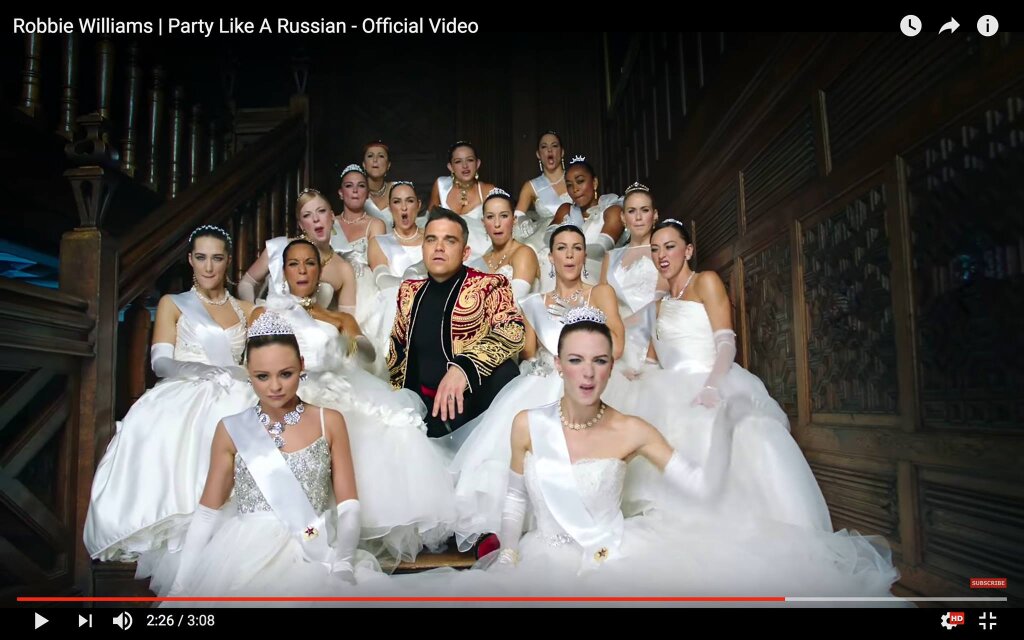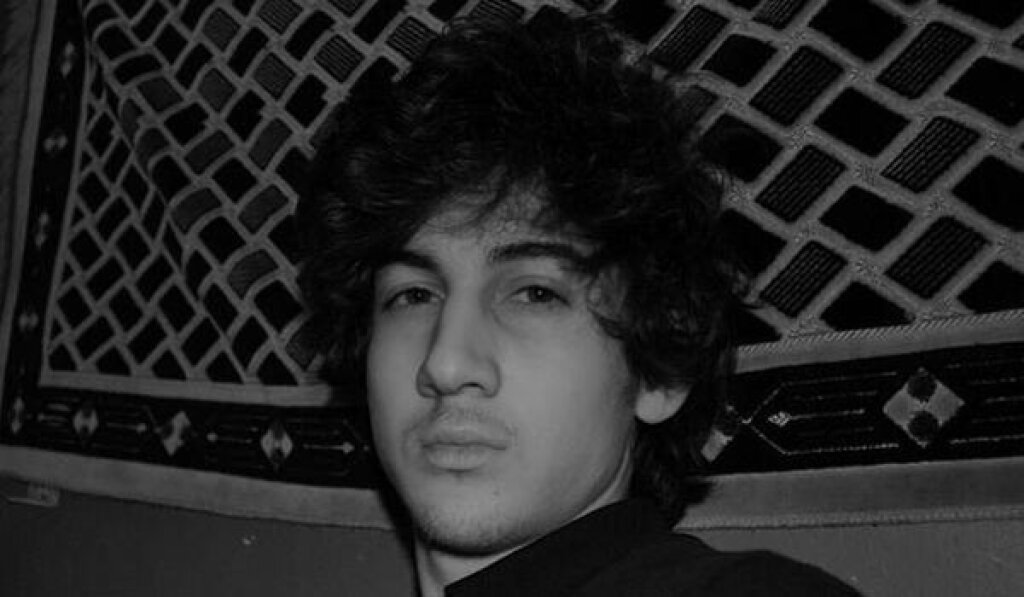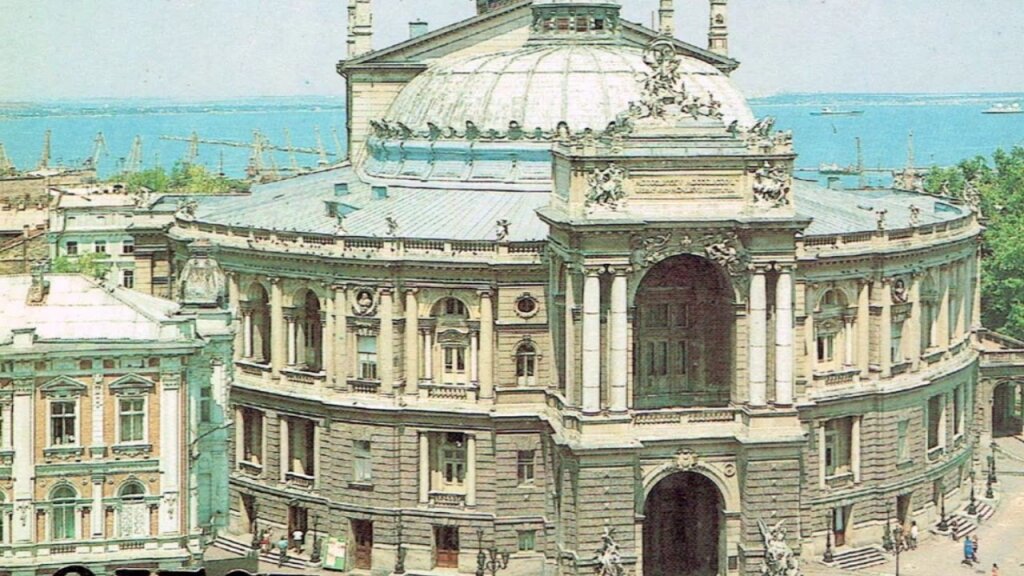Marijeta Bozovic is Assistant Professor of Slavic Languages and Literatures at Yale University
Robbie Williams brags more than apologizes in an interview with The Sun that his newest music video, “Party Like a Russian,” dropped two days ago on September 29, might offend all 147 million people in Russia. While a portion of his lyrics seem specifically targeted at Putin—or rather, at the clownish media Franken-Putin that has taken over our airwaves and social media feeds over the past three years—much of the puerile fun of the video rests on rank ethnic stereotyping and a painfully outdated worldview.
It takes a certain kind of man with a certain reputation
To alleviate the cash from a whole entire nation
Take my loose change and build my own space station
Williams, 42, must have been a teenager when the Soviet Union dissolved in 1991, but that doesn’t prevent the most bizarre Cold War rhetoric from informing his visual and verbal fireworks on vivid display today. From the space wars-era space station mentioned above to lines like “I'm a modern Rasputin” and “There's revolution in the air,” his music video is shocking less for its painfully racializing gaze (which is, for some reason, smilingly tolerated by cosmopolitan elites when directed at Slavs in the twenty-first century) than for the sense that this should be the work and vision of a much older man.
What revolution, Robbie? The specter haunting Russia and East Europe today isn’t that of communism, but twenty-first-century nationalism. And, as Williams’ video amply demonstrates, that same specter—along with its reactionary postmodernist aesthetic and inherent gender politics—is hardly foreign to either the UK or US.
I’m all for mocking oligarchs and their fashion choices (here ostentatiously Russian orientalist, as re-imagined by haute couture), but were the S&M ballerinas really necessary? “Put a doll inside a doll,” Williams croons over bass-heavy samples of Prokofiev’s ballet “Romeo and Juliet,” while idealized and blanched girls alternately play domestic Black Swan housemaids and White Swan beauty-pageant brides gone very bad.
The implied sexual threat becomes rather more explicit around minute 2:25 in the video, when the “dollies” are allowed to speak/sing for the first time. In place of the expected feminine harmonies, we hear the voices of an all-male choir overwhelm Williams’ scratchy tenor: “We’re the [well, more like ‘ze’] Russian boys, we’re everywhere.” But then, the best Bond bad girls were always icy Soviet agents with a surprise weapon tucked in their lacy underpants.
Are we really here again? “Party Like a Russian” is hardly a solitary phenomenon. The confused media coverage of cultural and current events ranging from Svetlana Alexievich’s 2015 Nobel Prize in literature, the aftershocks of Ukraine’s Maidan, the mostly imaginary Trump-Putin bromance, to even the current strikes against draconian anti-abortion legislation in Poland all speak to a desperate attempt to cling to narratives that refuse to hold. Rather than “What is to be done,” the (imagined, former) West and East alike ask only, “Who is to blame?”
What happened in Poland, anyway? The resurgent Cold War narrative of a struggle between two fundamentally opposed ideologies, the good and evil Empires, can hardly explain away why the ultimate New Europe success story (Solidarity and the dissidents won!) has resulted in impressive financial recovery and a reactionary government intent on waging war on its women and refugees alike.
I put a bank inside a car, inside a plane, inside a boat
It takes half the western world just to keep my ship afloat
That last line might be the only bit of accidental self-reflection that makes it into Williams’ new party anthem. But the only line that made me giggle, for what it’s worth, came not from the song but from the online comments of an anonymous Russian blogger: “How’s Brexit?”



